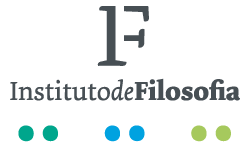From Data to Wisdom. Philosophizing Data Visualizations in the Middle Ages and Early Modernity (13th-17th Century)
Reference: POCI-01-0145-FEDER-029717
Funding: Fundação para a Ciência e a Tecnologia - Portugal 2020.
Funding: 239.373,75€
Period: 1st July 2018 - 30th June 2021.
Principal Investigator: José Higuera
Co-Principal Investigator: José Meirinhos
Project website: https://ifilosofia.up.pt/proj/fdtw/fdtw_project
TEAM
Steering committee: José Higuera - José Meirinhos - Alberto Romele
Researchers: Alberto Romele - João Rebalde - José Higuera - José Meirinhos - Lídia Queroz - Paula Silva - Paulo Tunhas - Armando Malheiro (U.Porto) - Dario Rodighiero (EPFL Lausanne) - Simone Guidi (Universidade de Coimbra) - Marta Severo (Université Paris Nanterre) - Enrico Terrone (Università di Torino).
Scientific advisers: Daniel A. Di Liscia (Univ. München) - Jos De Mul (Univ. Rotterdam) - Katja Krause (Univ. Harvard) - Maurizio Ferraris (Univ. Torino) - Sara Barrena (Univ. Navarra).
Abstract
From Data to Wisdom (FDTW) will focus on data treatment and visualization according to a comparative and critical perspective. The ICTs explosion is hiding the deep historical roots of these practices, but our hypothesis is that epistemological issues about data treatment and visualization were already faced and, in many cases, successfully resolved in the Middle Ages and Early Modernity. In the Middle Ages, a prolific production of data treatment and visualization tools has been undertaken for guaranteeing the efficient transmission of trivium and quadrivium knowledge, and for organizing complex relations among disciplines (Carruthers 1998, 2002; Meirinhos 2009). Furthermore, models were elaborated to apply upper forms of thinking to empirical and practical knowledge (Higuera 2015). Circular diagrams (Higuera 2013), arc diagrams (Maclean 2002), tables, and trees (Verboon 2014), were widely used for organizing and visualizing knowledge in a considerably complex way (Marchese 2013).
FDTW will be developed in four steps. First, Medieval and Early Modern data visualizations will be collected in a richer and more exhaustive way than previous literature did. Second, data treatment and visualizations will be linked to the theories of mind of that time. Third, FDTW will consider the relation between data organization and visualization, and the contemporary theories of mind. A specific attention will be devoted to the extended mind hypothesis and its link to productive imagination in the digital age (Romele 2018). Fourth, the analyzed data visualizations will be digitally reactualized. The visualization framework will stand on three main pillars: a) the implementation of an open source interactive web tool to recreate old visual models (see http:// rawgraphs.io/); b) the creation and use of quick and dirty visualizations as explorative tools (Mauri and Ciuccarelli 2016); c) exploit the potentiality of refined and interactive visualizations for creating “narrative visualizations” in order to disseminate the research results (Segel and Heer 2010). Several scientific outputs are expected. Moreover, many activities of dissemination are going to be undertaken, like an exhibition in collaboration with cultural institutions of the Norte Region. Public exhibitions are henceforth part of the academic environment and constitute a way to make the work accessible to the public at large (Latour and Leclercq 2016).
Milestones / Main activities
A dozen of articles on peer-reviewed international journals are expected. A permanent seminar and an international conference will be organized. A final collective publication and several activities of dissemination are expected.
Two post-docs will be hired.
Post doc fellow: Lídia Queiroz (2019- )
Working Packages
WP1 Conception and follow-up (M1-M36)
Coordinators: José Higuera, Alberto Romele, José Meirinhos
Other participants: João Rebalde, Lídia Queiroz
WP2 Medieval Visualizations (M6-M24)
Coordinator: José Higuera
Researchers: José Meirinhos, Paula Oliveira e Silva, Researcher 1
Advisors: Daniel A. Di Liscia, Katja Krause, Sara Barrena
WP3 Images and imagination in the Middle Age and Early Modernity (M13-M36)
Coordinators: José Meirinhos - Simone Guidi
Researchers: Paula Oliveira e Silva, João Rebalde, Celia López
Advisors: Daniel A. Di Liscia, Katja Krause
WP4 Images and imagination in the Digital Age (M13-M30)
Coordinator: Alberto Romele
Researchers: Armando Malheiro, Dario Rodighiero, Enrico Terrone, Marta Severo, Paulo Tunhas
Advisors: Maurizio Ferraris, Jos de Mul
WP5 Digital Visualizations (M10-M36)
Coordinators: Alberto Romele - Dario Rodighiero
Researchers: Armando Malheiro , Enrico Terrone, Marta Severo, Paulo Tunhas, Researcher 2, design studio
Advisors: Maurizio Ferraris, Jos de Mul
WP6 Dissemination (M1-M36)
Coordinators: José Higuera, José Meirinhos, Alberto Romele, Dario Rodighiero, Simone Guidi
Researchers and advisors: all the members of the project
Funding: Supported by Competitiveness and Internationalisation Operational Programme (POCI), under the PORTUGAL 2020 Partnership Agreement, through the European Regional Development Fund (ERDF) and through national funds by the FCT – Fundação para a Ciência e a Tecnologia - Portugal.

